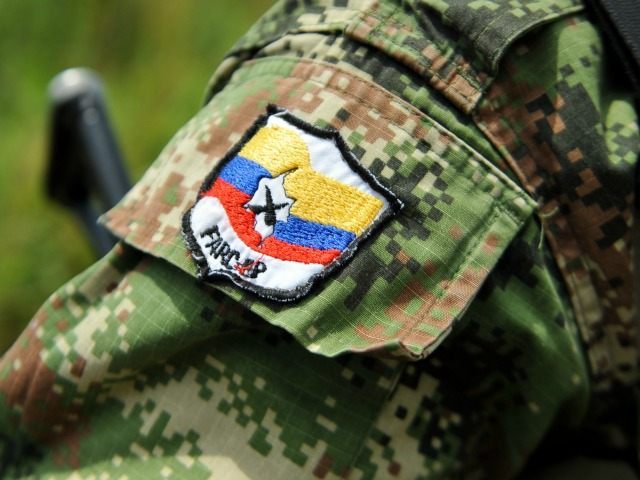The Revolutionary Armed Forces of Colombia (FARC), the world’s wealthiest non-jihadist terror group, is condemning the Colombian government’s proposal to stage a plebiscite in which the Colombian public would approve or reject the peace deal signed by the terrorist organization in Havana in September.
“What is the point of wasting time on a plebiscite project that, on the one hand, was not approved by the Havana round table and, on the other, it is known beforehand that its legal reach impedes it from approving the necessary themes to implement the final agreement?” asked FARC spokesman Iván Márquez in a statement released by the terrorist group.
“This is a pseudo-referendum disguised as a plebiscite,” the statement proclaimed.
The group described bringing the agreement before the Colombian people to vote on it as the “least favorable” of all possibilities on the table, according to leftist outlet TelesurTV.
FARC leaders have previously hinted to opting out of the peace accords agreed to in September, threatening to walk away if the government “begins to question” some of the provisions in their agreement. The FARC appear concerned that the Colombian people will reject some of their demands already agreed to by President Juan Manuel Santos.
Many of the provisions in the agreed-upon deal were left intentionally vague, requiring some interpretation on both sides. For example, both sides agreed that a special tribunal be organized to address FARC cases. Those found guilty of “political crimes” would have to perform community service but not go to jail, while those found guilty of “crimes against humanity” would serve time in prison. The groups did not specify what activity constitutes “political crimes,” leaving ambiguous crimes like drug trafficking undefined.
“It does not cease to surprise us how they insist on imposing end-of-conflict formulas upon us absolutely foreign to the peace talks, ignorant of the General Accord of Havana,” the FARC statement quips.
The Colombian Attorney General’s office is warning that the FARC’s red flags may indicate a desire to extort the government into adding provisions to the peace deal that would benefit them at the expense of the nation. “In its last few statements, the FARC has employed the same language it used to previously justify the massacre of 11 soldiers last April in Cauca,” the Attorney General warns. “These statements are an unacceptable threat of new massacres.”
Since then, the FARC has indeed made more demands on the government, now urging the President to agree to force the legislature to accept a quota of representatives of a newly-established FARC political party. The right-wing Democratic Center has staunchly opposed the introduction of the FARC into the Colombian Congress by mandatory means. Óscar Iván Zuluaga, party head and former presidential candidate, warned, “some fight within a democracy to represent Colombians, but they want to reward terrorists with [Congressional] seats.”
The peace accord must be agreed upon outside of the executive to be constitutionally sound, and the government has experimented with a number of ideas, the national vote currently being the most likely to be executed and most popular. Before that option appeared, the government had mulled the possibility of organizing a “mini-Congress” of Colombian citizens from all walks of life to approve the deal. That group would vote on giving President Santos extended powers that would allow him to single-handedly approve the deal. While both the FARC and, surprisingly, right-wing leader and former Colombian President Álvaro Uribe supported that route, the government ultimately chose to limit the people who could serve on the “mini-Congress” to those actually in the Colombian legislature, losing the support of Uribe and the FARC.
Now, the Colombian government hopes to organize the plebiscite by the beginning of 2016, so as to implement the peace deal in March 2016. “We hope that, before the first quarter of the year is over, Colombians will be able to go to the polls to vote in favor or against the peace deal,” Colombian Minister of the Interior Juan Fernando Cristo told Colombian newspaper El Tiempo.
The government appears confident that Colombians will vote in favor of the peace deal, though whether Colombians will support the provisions of the deal once they have a direct impact on their daily lives remains to be seen. Colombia’s Eafit University’s Center for Political Analysis conducted a poll finding that half of the Colombian people would not be willing to live next door to a former FARC terrorist. While tolerance for FARC terrorists was slightly higher in Medellín, the mountain city once home to the nation’s most powerful drug dealers, the statistics indicate that stigma will present a challenge to the government in reintegrating FARC terrorists, many kidnapped and forced to fight as children.

COMMENTS
Please let us know if you're having issues with commenting.